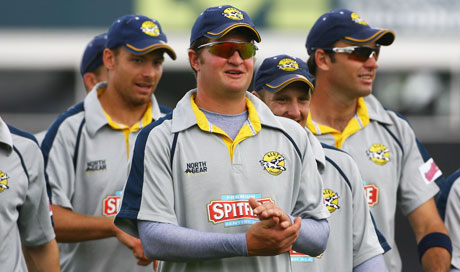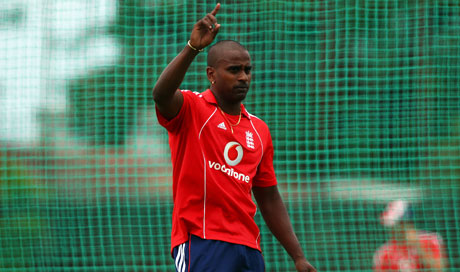
When Richie Benaud made his oft-quoted point about captaincy (90% luck, 10% skill, you know the one) he may not have been thinking of the kind of situation that has arisen in England this week. To recap: a man who recently hit 79 not out off 61 balls in a one-day game reduced to 20 overs is not even in the 30-man provisional squad for the World Twenty20, apparently leaving the path clear for a replacement who has not played international cricket for four years. Just as counter-intuitively, everyone seems agreed that the exile is the man for the job.
Truly, Rob Key is blessed. If Key is named captain for a couple of weeks in June, he will wonder whether Benaud underestimated the 90% part of his homely equation. It is often said that the Booker Prize is won by the novel that is most judges’ second favourite: a compromise, in other words, which avoids the ego-threatening perception that any single judge’s first choice was deemed more worthy than his colleagues’. But Key, for all his qualities – and successive Twenty20 Cup finals with Kent are not to be sniffed at – would not even be most judges’ second favourite if events had not taken the course they have. Or third. Or fourth. His ascent, should it occur, will be by default.
Yes, luck. While Key has been out of the England side, plenty has been going on. Andrew Flintoff turned up drunk to training in Australia, then fell off a pedalo. Michael Vaughan never worked out one-day cricket. Paul Collingwood stepped down from the one-day captaincy because it was affecting his batting. Kevin Pietersen was encouraged to quit for speaking his mind. And, most crucially, Strauss decided he wasn’t suited to Twenty20 cricket before that 79 not out in Barbados. One by one, the frontrunners have fallen.
Meanwhile Key – who last played for England, remember, when they were actually a pretty good side: yes, it was that long ago – has been able to gather Twenty20 experience in county cricket. As Geoff Miller said on Monday, experience will count for lots when the new captain is chosen. That’s quite lucky too. But there’s more. Strauss is an opening batsman. And so is Key. The cards really could not have fallen more favourably.
The thing is, Key might actually do a pretty good job. He is well-liked, has the ear of Andrew Flintoff (more important than you might imagine), knows how to win games of Twenty20 (his record with Kent is 16 victories, 10 defeats and a tie), has the game to take advantage of powerplays (at least at county level) and won’t regard the World Twenty20 as a mere taster for the Ashes. Luck or no luck, England may have stumbled across a decent candidate.
And yet the nagging feeling is that Strauss is wrong to under-estimate his own abilities at the shortest form of the game, and the selectors are wrong not to talk him round. Four years ago, England set the tone for a heady summer by thrashing Australia by 100 runs in a Twenty20 international at the Rose Bowl. Darren Gough was so pumped up that he preferred to hit Andrew Symonds rather than go for a hat-trick. Vaughan, that least adept of Twenty20 players, was captain then, and the result told us that England were a team with an increasingly formidable identity. Whatever happens this summer, the chance of building momentum immediately prior to the Ashes under the same leader has now gone.
Lawrence Booth writes on cricket for The Guardian. His third book, Cricket, Lovely Cricket? An Addict’s Guide to the World’s Most Exasperating Game is out now published by Yellow Jersey




